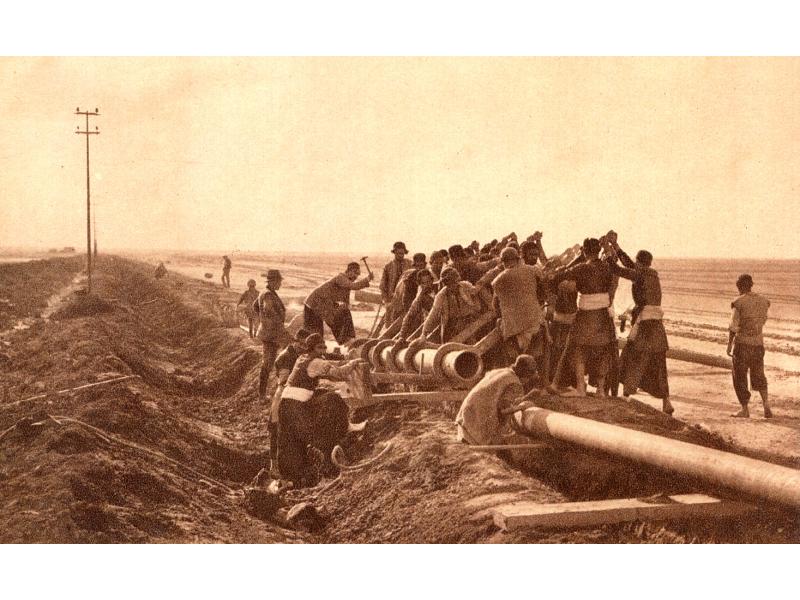A lengthy article written in the Windsor Daily Star in 1938 described Arthur Lambert as "the best known and most widely-travelled oil driller that ever represented the Petrolia clan". He has worked in eight countries besides Canada, crossed the Atlantic Ocean over ten times and the Pacific twice, and survived many trying experiences. Lambert was largely involved in test drilling to discover oil deposits and became quite in-demand. By the end of his career, there was "nothing about drilling a well that he [didn't] know."
From a young age, growing up in Petrolia, Lambert was a curious boy and spent much of his free time wandering through the neighboring oil fields, constantly pestering workers to answer his questions. At age 18, he began a five-year position on Jackson Stuthers' rigs where he gained most of the knowledge that would carry him through his career.
After moving to Dunnville where he drilled for a gas syndicate, he took a brief pause from his career in the oil industry when he was whisked off to California by a baseball manager to tour the coast as a shortstop. As much as he enjoyed his time playing baseball, an injury forced him to quit after two years and he stayed in California to work for the Standard Oil Company.
Next, Lambert was offered a contract with the Niger-Bicherman Oil Company to test drill in Southern Nigeria. He enjoyed an all-expense paid trip across the ocean, travelling on the best ocean liner and staying in the most expensive hotels. By comparison, daily life for the driller once he arrived in Nigeria was "simply solitary confinement". He described the terrible climate and the awful smell of vegetation rotting on the lagoons. On one occasion, his arm swelled to three times its normal size when he was bit by a fly.
He spent the following years in Northern India, Trinidad, and Venezuela, where he was among the first groups of drillers to test drill for oil and was quite successful. His experience with the climate did not improve, however, and he left Venezuela after only a few months after contracting malaria.
Lambert was home long enough to recuperate and then he was sent to Persia (modern Iran) in 1916 to supervise construction on a pipeline to carry oil from the Anglo-Persian Oil Company's fields, over the mountains, to the Abadan Refinery on the Persian Gulf. While other men from Lambton County were fighting for their lives in the trenches, Lambert was under immense pressure to deliver much needed crude oil to the war effort. "I never served in the trenches with the boys," he said, "but when I was putting through this pipeline, I was doing more than 1,000 rifles."
He stayed in Persia for only a year and then travelled to Ceram Island, in Indonesia, to work for Royal Dutch Shell. After his previous experiences, "the beautiful Ceram was next best thing to Heaven." The drilling was comparatively easy and there was lots of game to be hunted during his time off. In 1919, he moved on to Mesopotamia, where he drilled for oil in the hilly countryside amongst Arab sheepherders. His final drilling contract took him back to Venezuela where he had to be rescued from his ship which had become wedged on the rocks in shark-infested waters.
The time Lambert spent in the International oil fields would provide him with a lifetime of stories about the exciting adventures he had and with the depth of knowledge he gained, local drillers would come to him whenever they had a problem that needed solving.



 Postcard showing a group of workers laying a pipeline in Persia (modern Iran).
Postcard showing a group of workers laying a pipeline in Persia (modern Iran).
Add new comment